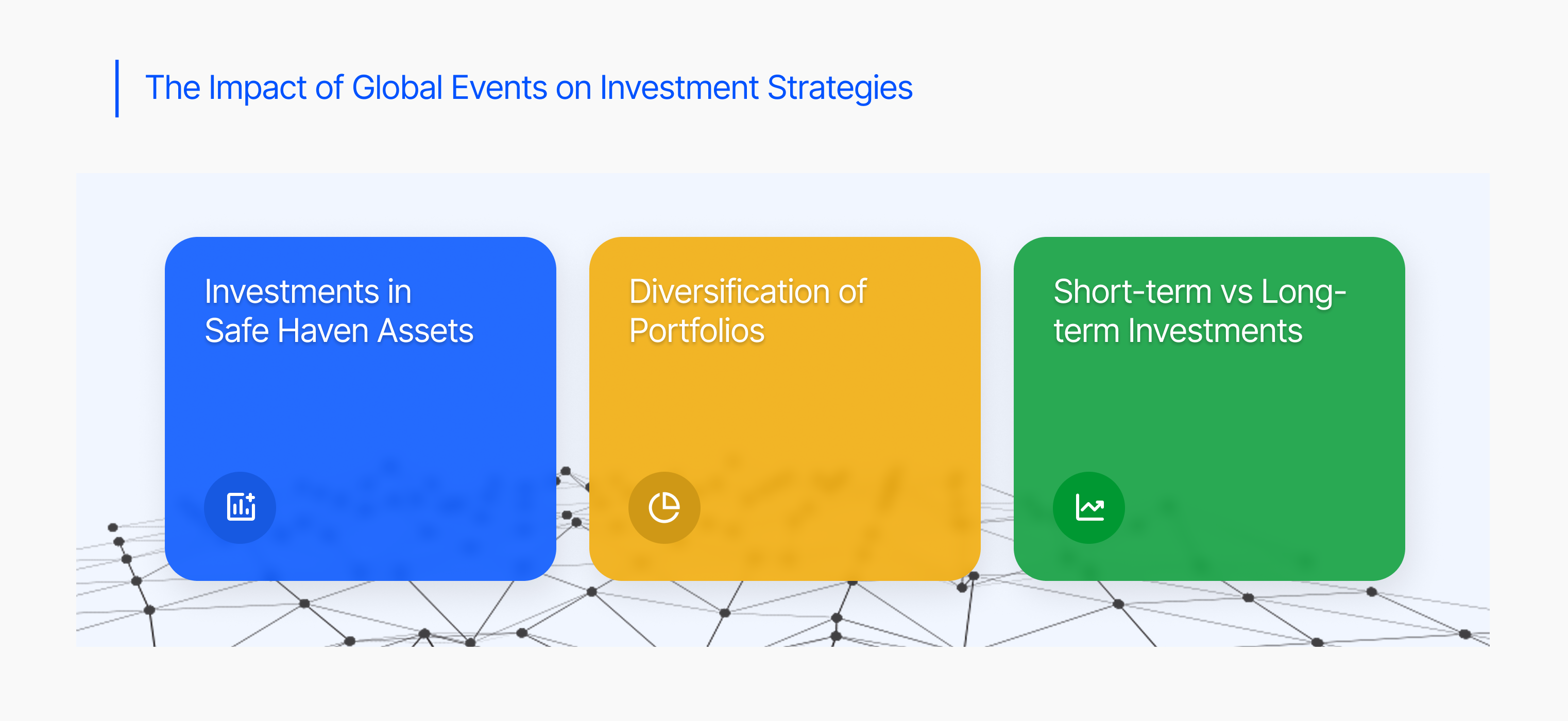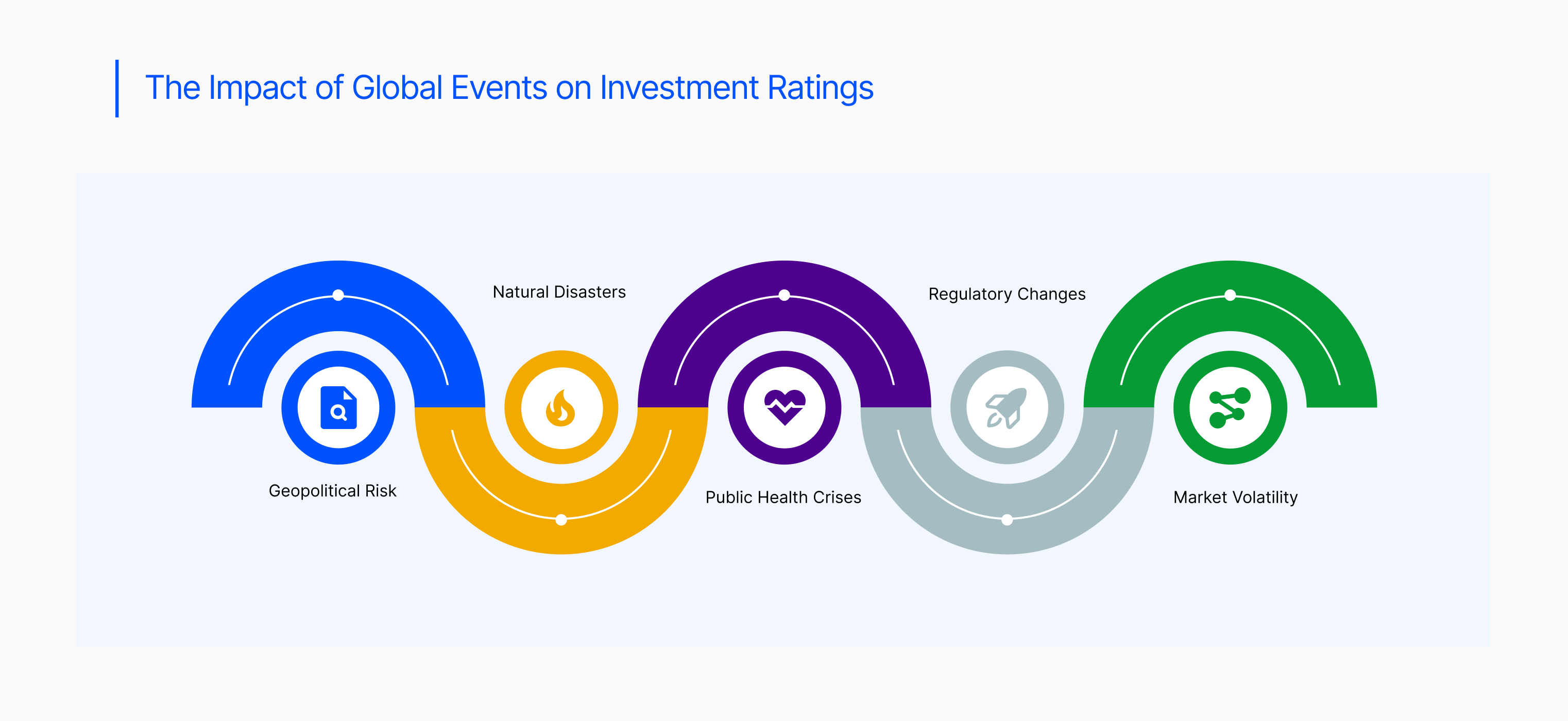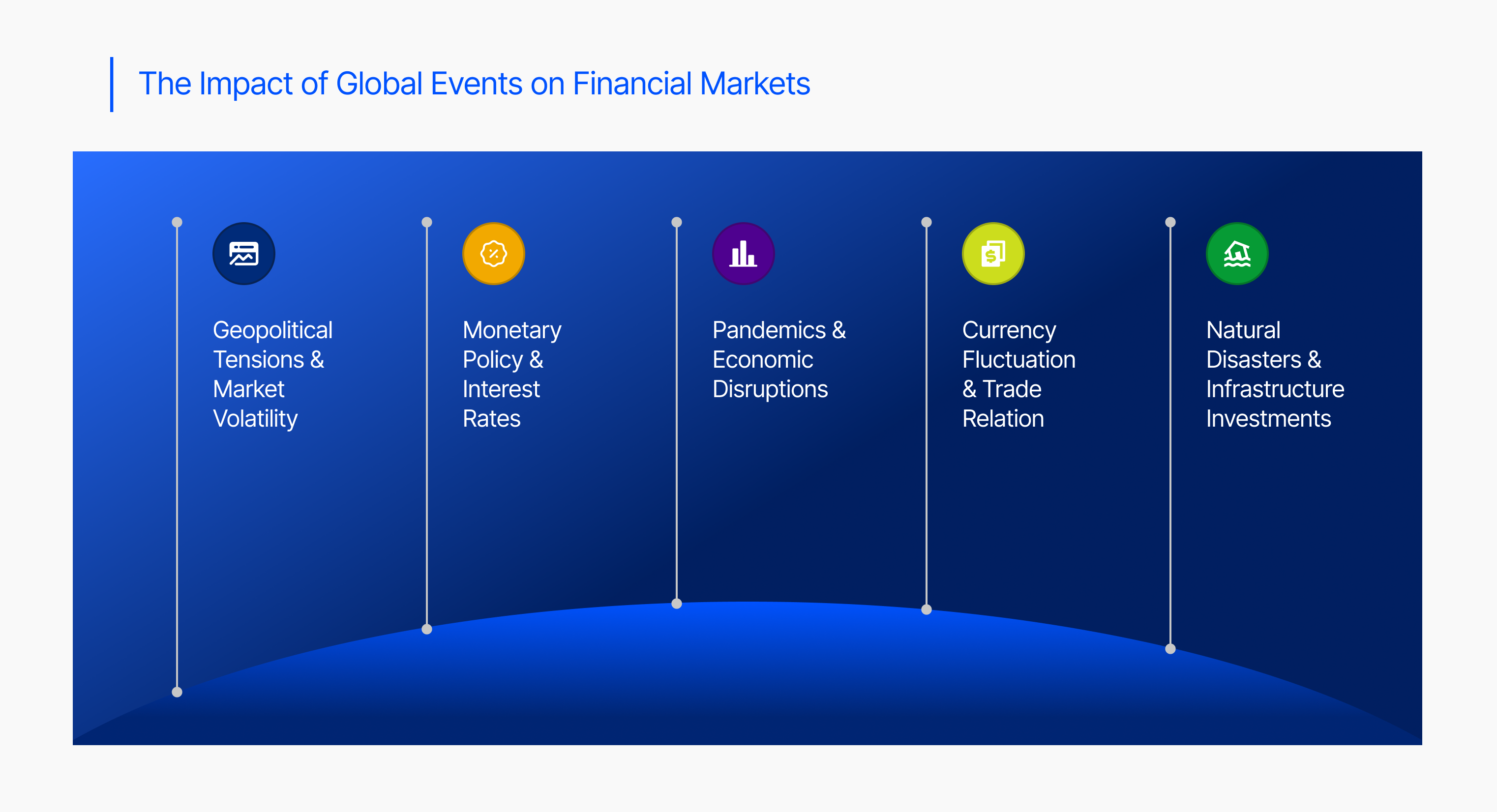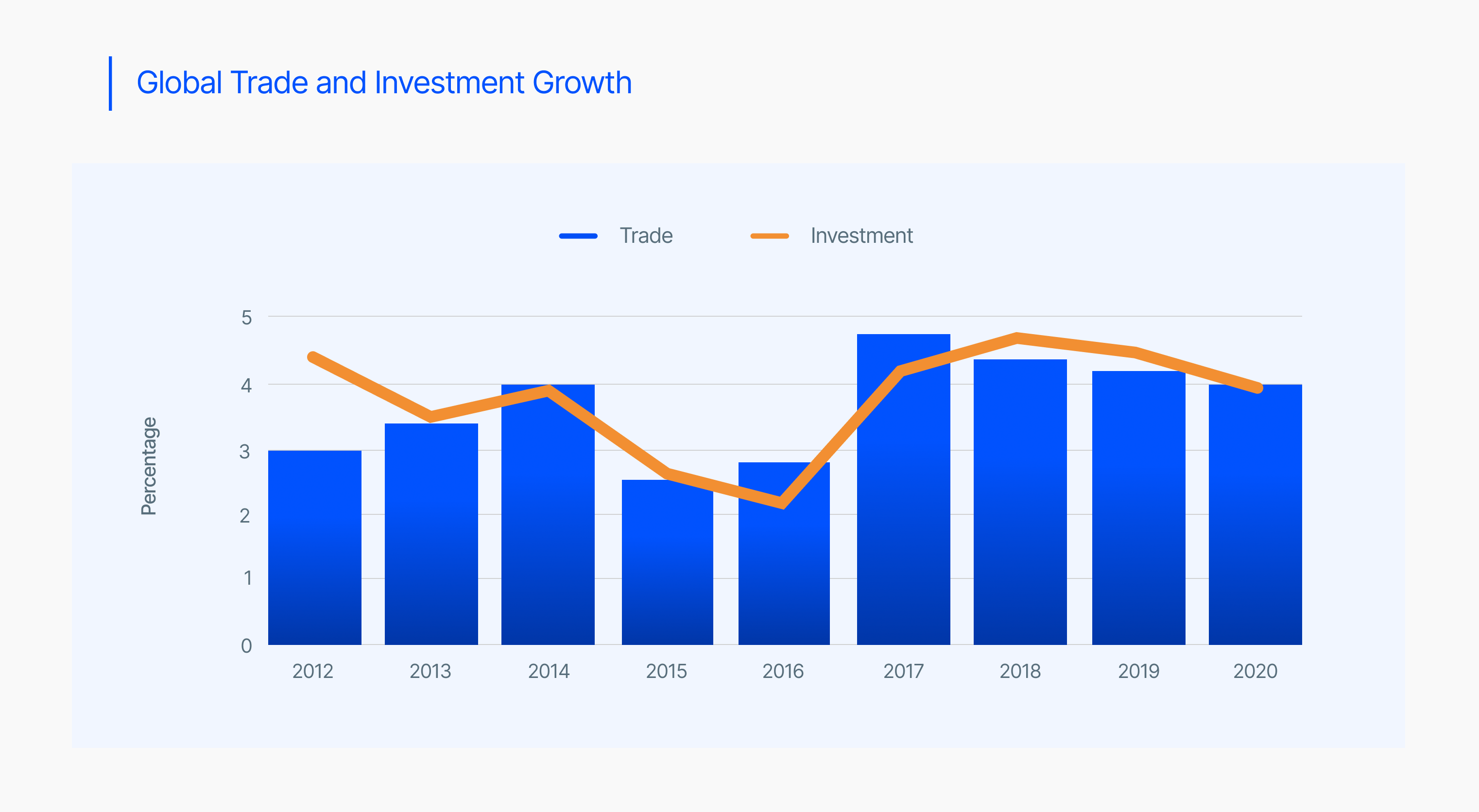How Global Events Impact Your Investments
The world stage is constantly shifting. From ongoing conflicts to new alliances, geopolitical risks remain a major concern for investors around the world. While large-cap equities often grapple with these challenges, certain market segments can feel the impact for years to come. So, how can you protect your portfolio and even find opportunities in this turbulent, ever-evolving business world? We will analyze it in this blog.

The Resilience of Large Caps: A Historical View
Looking back at major geopolitical events from 1940 to 2022, a clear trend emerges: initial market fears are usually followed by recovery. While markets might slump in the immediate aftermath (within three months), six-month and one-year returns tend to align with periods of relative stability. In short, the long-term effect on a diversified large-cap portfolio is often minimal.

However, history offers some important lessons. Per an article published on J.P. Morgan Private Bank website, “the 1973 oil shock did have a lasting impact on equity returns. That is primarily because oil remained in short supply for an extended period, resulting in a macro state of “stagflation” (high inflation amid deteriorating productivity growth).” This contrasts sharply with the 2022 energy market shock after the Ukraine invasion. The key difference? The flexibility of US oil production, a crucial buffer that wasn't available in the 1970s. Data on US oil production can be found from the U.S. Energy Information Administration (EIA).
Localized Impacts of Geopolitics
While global equities often shrug off geopolitical events, specific markets can be greatly impacted. Here are a few compelling examples:
- German Small Caps: According to a report published on clearnenergywire.org, after Russia started its devastating war on Ukraine, “the energy policy landscape of Germany and most of Europe has changed radically”. This has led to significant underperformance of German small-cap stocks compared to their large-cap counterparts, which benefit from global diversification and a higher weightage in less energy-intensive sectors like technology.
- Hong Kong vs. Singapore Real Estate: Political developments in Hong Kong, including the 2019 protests and the National Security Law, have prompted population outflows and corporate de-risking, negatively affecting the real estate market. Singapore, on the other hand, has become a preferred destination for those leaving Hong Kong, leading to a yawning gap in property values.
- Gold Market Dynamics: The traditional inverse relationship between gold prices and US Treasury real yields has weakened. Geopolitical factors, particularly the freezing of Russian foreign exchange reserves, have spurred central bank demand for gold as a "sanction-proof" asset. Gold has also proven to be an effective tactical hedge against short-term market volatility impacted by geopolitical shocks.

Diversification and Hedging — Effective Investment Strategies
While broad market panic over geopolitics might be exaggerated, investors need to be prepared for localized and short-term volatility. Diversification across global markets is absolutely essential, particularly for those with concentrated holdings. For those looking to alleviate short-term volatility, setting aside a portion of their portfolio to gold and oil can be a smart hedging strategy.
The BRICS+ Factor
The rise of the BRICS+ economies is another key geopolitical development to watch. While the bloc is showing immense strength in areas like population and resource production, the US dollar still reigns supreme as the global reserve currency.

However, BRICS+ nations have been steadily accumulating gold reserves, potentially as a hedge against future worries and a move towards diversifying away from the US dollar. While the dollar's dominance is expected to continue in the near term, long-term questions remain about US fiscal deficits and the potential consequences of a shift in reserve currency status. This could have major implications for US living standards, making it crucial to monitor these evolving dynamics.
The Bottom Line
Geopolitical events present a complex mix of risks and opportunities. While broad market impacts are often short-lived, localized effects can be significant. Investors need to prioritize diversification, consider hedging strategies, and stay informed about the evolving geopolitical landscape, including the growing influence of the BRICS+ economies and its potential impact on the global financial system. An understanding of these dynamics can enable you to weave through the geopolitical maze and position your portfolio for success.
Share With